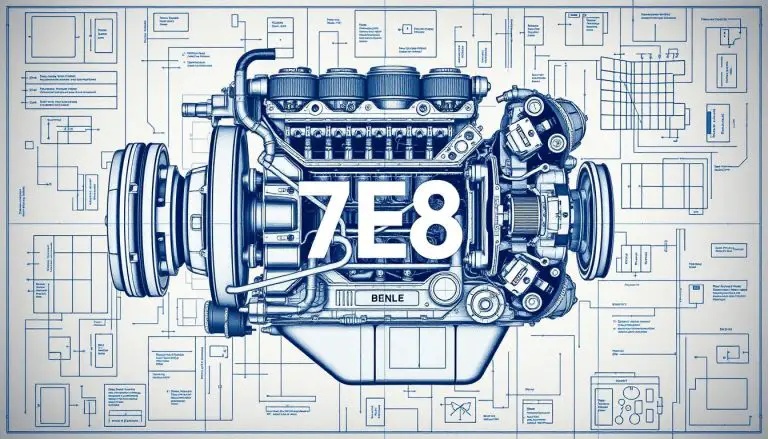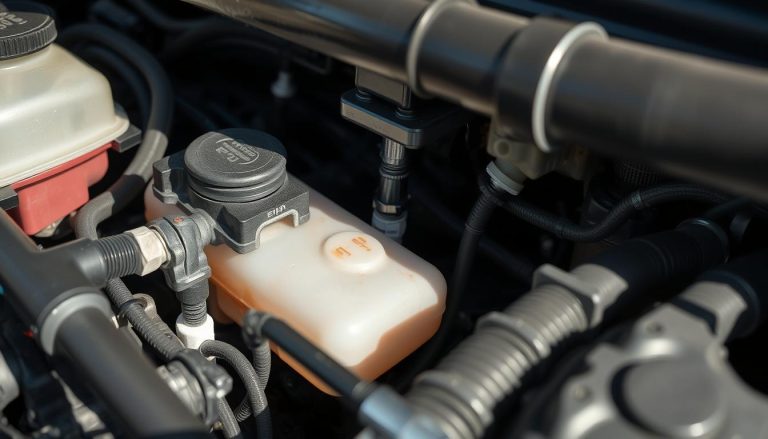If your vehicle’s check engine light has come on and you’ve seen the P0357 code pop up, you might be wondering what it means for your car’s health. But fear not! Understanding the P0357 code is essential for keeping your vehicle running smoothly.
This blog post will break down everything you need to know about this specific ignition coil malfunction—from its causes and symptoms to the diagnosis and repair processes. Let’s dive into the details surrounding this pesky issue so you can get back on the road with confidence!
What does the P0357 code mean?
The P0357 code is a diagnostic trouble code that indicates an issue with the ignition coil G’s primary or secondary circuit. Essentially, it’s a signal from your vehicle’s onboard computer, alerting you that something isn’t quite right.
Ignition coils are crucial for converting battery voltage into high-voltage sparks needed to ignite the fuel-air mixture in your engine. When the system detects an abnormality in Coil G—often related to electrical connections—it triggers this specific code.
This malfunction could stem from several factors like faulty wiring, a bad ignition coil itself, or even issues with the powertrain control module (PCM). Understanding what this code signifies can help pinpoint deeper issues affecting performance and efficiency.
What parts can be affected by P0357 code ?
The P0357 code primarily indicates a malfunction in the ignition coil G’s primary or secondary circuit. This specific issue can potentially affect several key components within your vehicle.
First and foremost, the ignition coil itself is an obvious candidate. A faulty ignition coil can lead to poor engine performance and misfires.
Furthermore, wiring harnesses connected to this circuit may also be impacted. Damaged wires or loose connections can disrupt communication between components.
The Engine Control Module (ECM) plays a crucial role too. If it receives incorrect signals due to issues stemming from the ignition system, operational problems may arise.
Spark plugs could suffer as well. They depend on proper voltage supplied by the ignition coils for optimal functioning. Any disruption here might lead to rough idling or stalling issues down the line.
What are the possible causes of a P0357 code?
The P0357 code typically points to issues within the ignition coil’s primary and secondary circuits. Various factors can trigger this malfunction.
One common culprit is a faulty ignition coil itself. If it’s damaged or worn out, it can lead to circuit problems that register this error code.
Wiring issues are another significant cause. Damaged wires or poor connections in the ignition system can disrupt communication between components, leading to the P0357 alert.
Additionally, problems with the engine control module (ECM) may also be at fault. A failing ECM might misinterpret signals from the ignition coils and throw a P0357 code as a result.
Environmental factors like moisture or corrosion around electrical connectors can exacerbate these issues too. It’s essential to inspect all related parts thoroughly when diagnosing this problem.
What are the common symptoms of a P0357 code?
When your vehicle throws a P0357 code, several symptoms may emerge. One of the most noticeable signs is engine misfires. You might feel the car shaking or uneven power delivery while driving.
Another common symptom is difficulty starting the engine. If it’s taking longer than usual to turn over, it could be an indication of ignition coil issues related to this code.
Additionally, you may experience a decrease in fuel efficiency. If you’ve noticed that you’re stopping at gas stations more often, this could be linked back to problems with the ignition system.
Check engine light activation is also prevalent when dealing with a P0357 code. That little warning light can mean various things but pay attention if it’s on alongside other performance issues.
Some drivers report unusual smells from under the hood or strange noises when accelerating, hinting at underlying electrical faults within the ignition circuit.
What are the diagnostic steps for a P0357 code?
Diagnosing a P0357 code involves several critical steps. Start by using an OBD-II scanner to retrieve the trouble codes stored in the vehicle’s computer. This will confirm if P0357 is present and may reveal additional related codes.
Next, visually inspect the ignition coil and wiring harness for any obvious damage or loose connections. Corrosion or frayed wires can lead to circuit malfunctions that trigger this code.
After ruling out visible issues, conduct a resistance test on the ignition coil itself. Compare your readings with manufacturer specifications to determine if it’s functioning properly.
If everything appears normal, use a multimeter to measure voltage at the coil’s connector while cranking the engine. A lack of voltage indicates further electrical problems that need addressing.
Don’t skip testing other potential components like spark plugs and the ECU as they could also contribute to setting off this code.
How serious Is the P0357 Code? Can I continue driving with the P0357 code?
The P0357 code signifies a malfunction in the ignition coil G primary/secondary circuit. This can lead to performance issues and may affect engine efficiency.
Continuing to drive with this code is not advisable. Ignoring it could result in further damage to the ignition system or other components. You might experience symptoms like misfires, rough idling, or poor acceleration.
In some cases, your vehicle may enter limp mode as a protective measure. This limits speed and power to prevent additional damage.
If you notice any of these signs, it’s best to seek professional help promptly. Delaying repairs could exacerbate existing problems and increase repair costs down the line. Prioritize safety and vehicle reliability by addressing the P0357 code without delay.
What are the repair solutions for a P0357 – Ignition Coil G Primary/Secondary Circuit Malfunction ?
Repairing a P0357 code typically involves addressing the ignition coil and its associated wiring. Start by inspecting the ignition coil G for any signs of damage, such as cracks or corrosion. If it’s faulty, replacing the coil can resolve the issue.
Next, check the wiring and connectors linked to the ignition coil. Damaged or shorted wires may need repair or replacement. Ensuring all connections are secure is vital for proper functionality.
In some cases, testing related components like spark plugs and engine control modules might be necessary. A malfunction in these areas could trigger a P0357 code.
After repairs are made, clearing any stored codes from your vehicle’s computer system is essential before taking it for a test drive to confirm that everything works seamlessly again. Regular maintenance can help prevent this problem from recurring in the future.
How long and How much does it cost to diagnose and repair a P0357 code?
The cost and time to diagnose a P0357 code can vary widely. Generally, a diagnostic scan at a repair shop might range from $75 to $150. This initial step helps pinpoint the specific issues related to the ignition coil circuit.
Once diagnosed, repairs can take anywhere from one to several hours based on the underlying problem. If it’s simply replacing an ignition coil, you could spend around $100 to $300 for parts and labor combined.
However, if more extensive work is needed—like wiring harness repairs or computer reprogramming—the costs could escalate significantly. Always request a detailed estimate before proceeding with any repairs so you’re aware of what to expect financially.
How can I avoid a P0357 code?
Regular maintenance is key to preventing the P0357 code. Schedule routine inspections of your ignition system, including coils and wiring. Replace worn-out spark plugs as part of your regular check-up.
Pay attention to any unusual engine behavior. Strange noises or misfires often signal underlying issues that could lead to a malfunction code. Addressing these early can save you from bigger headaches later on.
Keep an eye on battery health and connections too. A weak battery can stress the ignition coils, leading them to fail prematurely.
Using high-quality fuel also matters. Low-quality gasoline can cause engine performance problems, impacting various components, including ignition systems.
Invest in diagnostic tools if you’re DIY-inclined. They help monitor potential issues before they escalate into error codes like P0357.
What happens if you ignore a P0357 code?
Ignoring a P0357 code can lead to significant issues down the line. The warning indicates a malfunction in the ignition coil circuit, which plays a crucial role in your vehicle’s engine performance.
Failing to address this issue can result in poor engine performance. You might experience misfires, reduced power, or stalling while driving.
Increased fuel consumption is another consequence of neglecting this code. An inefficient combustion process forces your engine to work harder, ultimately draining your wallet at the gas pump.
Moreover, prolonged disregard for the P0357 code could cause damage to other components within the ignition system or even affect the catalytic converter over time. This not only complicates repairs but may also lead to more extensive and costly fixes later on.
Your vehicle’s reliability will wane if you don’t act promptly. Regular maintenance becomes essential when dealing with diagnostic trouble codes like P0357.
Is the P0357 code specific to certain car makes or models?
The P0357 code is not limited to specific car makes or models. It can appear across a range of vehicles, both domestic and foreign. This broad applicability stems from the common use of ignition coil systems in modern engines.
However, some manufacturers may have particular quirks that trigger this code more frequently. For instance, brands with known electrical issues might see a higher incidence of P0357-related problems.
It’s essential for vehicle owners to understand their model’s unique characteristics. Certain symptoms could manifest differently depending on the manufacturer’s design choices and engineering standards.
When diagnosing a P0357 code, always refer to the service manual for your make and model. This ensures accurate troubleshooting tailored to your vehicle’s specifications.
What other codes may be related to P0357?
When dealing with the P0357 code, it’s essential to be aware of other potential trouble codes that may arise. These can often accompany or share similar symptoms, making diagnosis more complex.
Codes such as P0300 (Random/Multiple Cylinder Misfire Detected) and P0301 through P0308 (Cylinder Misfire Detected on Specific Cylinders) could appear if misfires are happening due to ignition coil issues. Additionally, you might encounter codes like P0200 (Injector Circuit Open), which can also affect engine performance and lead to similar symptoms.
Other related codes include P0420 (Catalyst System Efficiency Below Threshold), which may throw a wrench in your diagnostics if there are exhaust issues stemming from misfiring cylinders. Understanding these related codes will help in accurately diagnosing the problem at hand.
Being vigilant about all possible trouble codes is crucial for effective vehicle maintenance. It ensures you’re addressing not just the symptom but any underlying conditions that could worsen over time. This comprehensive approach helps maintain your car’s health and prolongs its lifespan on the road.


